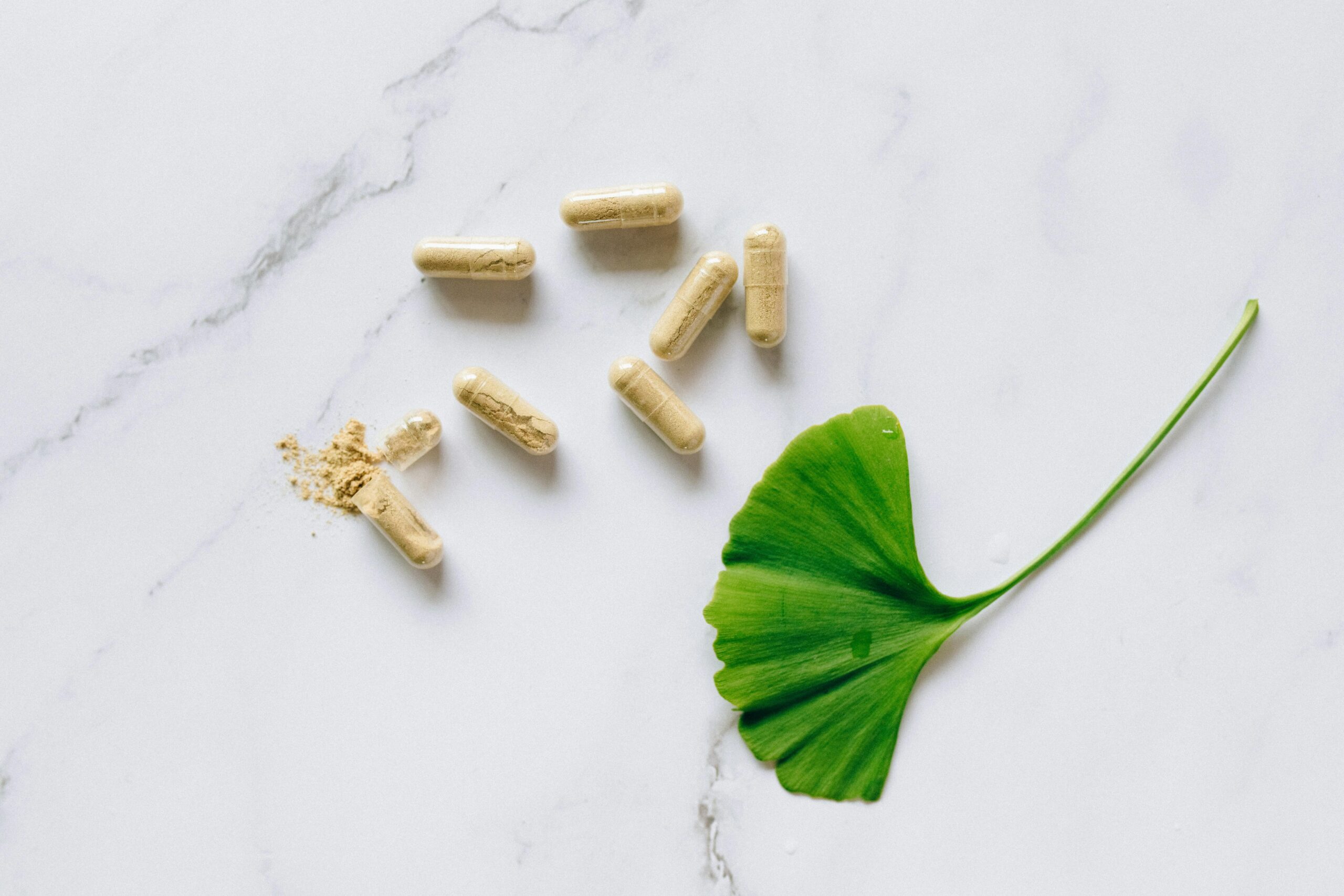
Nutrahara Blog
Nutrahara Blog
How a Breast Cancer Healthy Diet Can Support Recovery
1. Understanding Breast Cancer Healthy Diet and and Its Impact on Women
What is Breast Cancer?
Breast cancer is one of the most common cancers affecting women worldwide. It occurs when cells in the breast tissue grow uncontrollably, forming a lump or mass that can spread to other parts of the body. While breast cancer can affect men, it is far more prevalent in women due to hormonal and biological differences.
Key facts about breast cancer:
- It can be classified into various types, including invasive ductal carcinoma and invasive lobular carcinoma.
- Risk factors include age, genetics, hormonal imbalances, obesity, and lifestyle choices.
- Early detection through mammograms and regular check-ups significantly increases the chances of successful treatment.
Breast cancer not only affects the body but also takes an emotional toll, causing anxiety, depression, and changes in self-image. For women, understanding the disease and breast cancer healthy diet is the first step toward prevention and effective management.
2. Breast Cancer Healthy Diet: Foods to Embrace
A breast cancer healthy diet is a powerful tool in the prevention and management of breast cancer. Certain foods are packed with nutrients that can help reduce inflammation, regulate hormones, and support the body’s ability to combat disease. Embracing these foods as part of a balanced diet not only aids breast health but also promotes overall well-being.
For more insights on the link between lifestyle choices and cancer prevention, visit Susan G. Komen’s resource on diet and breast cancer.
Top Cancer-Fighting Foods
Incorporate these nutrient-rich foods as breast cancer healthy diet to help lower breast cancer risk:
- Cruciferous vegetables: Broccoli, kale, and Brussels sprouts contain sulforaphane, which helps eliminate cancer-causing substances.
- Berries: Blueberries, raspberries, and strawberries are high in antioxidants that fight free radicals.
- Leafy greens: Spinach and arugula are rich in vitamins and phytochemicals that support cell health.
- Fatty fish: Salmon, mackerel, and sardines provide omega-3 fatty acids, known for reducing inflammation.
- Whole grains: Brown rice, quinoa, and oats supply fiber, which can help regulate hormones linked to breast cancer.
The Power of Plant-Based Diets
Plant-based diets emphasize natural, unprocessed foods that are rich in nutrients. Benefits of this breast cancer healthy diet include:
- Lower intake of unhealthy fats and processed sugars.
- Higher levels of antioxidants and phytonutrients that protect cells.
- Reduced risk of obesity, a major risk factor for breast cancer.
Healthy Fats and Breast Cancer
Not all fats are created equal. Healthy fats, such as those found in:
- Avocados and olive oil: Support heart health and reduce inflammation.
- Nuts and seeds: Provide essential fatty acids and protein.
- Omega-3 fatty acids: Found in fish and flaxseeds, these are linked to lower breast cancer recurrence rates.
7 Daily Diet Tips for Breast Cancer Prevention
- Include at least 2 servings of vegetables with every meal.
- Swap processed snacks for fresh fruit or nuts.
- Drink green tea daily for its anti-cancer properties.
- Add a handful of flaxseeds or chia seeds to smoothies or oatmeal.
- Choose whole-grain bread and pasta over refined options.
- Use herbs and spices like turmeric and garlic to enhance meals.
- Stay hydrated with water and limit sugary beverages.
Embracing these breast cancer healthy diet habits can empower women to take proactive steps for their breast health. A nutrient-dense diet not only reduces cancer risk but also supports recovery and long-term wellness.
3. Foods to Avoid for Breast Health
While certain foods can promote breast health, others may increase the risk of breast cancer or hinder recovery. Avoiding or limiting these foods can reduce inflammation, regulate hormones, and support overall wellness. Making mindful dietary choices is essential for maintaining optimal breast health.
The Impact of Processed Foods
Processed foods are often high in unhealthy fats, refined sugars, and additives that can contribute to inflammation and weight gain. These factors are linked to an increased risk of breast cancer. Common processed foods to limit or avoid include:
- Packaged snacks like chips, cookies, and crackers.
- Sugary cereals and breakfast bars.
- Frozen meals and ready-to-eat foods with high sodium or trans fats.
- Processed meats such as hot dogs, sausages, and deli meats, which may contain carcinogenic preservatives.
Opt for whole, unprocessed foods whenever possible to reduce exposure to harmful additives.
Alcohol and Breast Cancer
There is a well-documented link between alcohol consumption and an increased risk of breast cancer. Alcohol can raise estrogen levels and damage DNA, both of which are factors in cancer development.
- Moderation is key: Limit alcohol intake to no more than one drink per day, or avoid it altogether.
- Healthier alternatives: Choose sparkling water with fresh fruit or herbal teas as a substitute for alcoholic beverages.
Excessive Sugar and Refined Carbohydrates
High sugar and refined carbohydrate intake can lead to weight gain and insulin resistance, both of which are associated with a higher risk of breast cancer. Foods to avoid include:
- Sugary drinks like soda and energy drinks.
- White bread, pasta, and rice, which cause blood sugar spikes.
- Desserts like cakes, cookies, and pastries loaded with refined sugars.
Choose natural sweeteners like honey or stevia, and opt for whole-grain alternatives to refined carbs.
Unhealthy Fats
Trans fats and excessive saturated fats can promote inflammation and increase breast cancer risk. Foods high in unhealthy fats to avoid include:
- Fried foods like French fries and fried chicken.
- Hydrogenated oils often found in margarine and baked goods.
- High-fat cuts of red meat, which can also contain hormones that disrupt the body’s natural balance.
Replace these with healthy fats, such as those found in avocados, nuts, and olive oil.
By eliminating or reducing these foods, women can create a diet that supports breast health and overall well-being. Small, consistent changes in eating habits can have a significant impact on long-term health outcomes.
4. Natural Treatments and Herbs for Breast Cancer Support
Incorporating natural treatments and herbs into a wellness plan can provide additional support for women navigating breast cancer prevention and recovery. These herbs have long been used in traditional medicine for their healing properties and may help reduce inflammation, fight oxidative stress, and promote overall health. While they should complement, not replace, conventional treatments, these natural remedies can play a vital role in supporting the body during this challenging time.
Herbs with Healing Properties
Several herbs have shown promise in supporting breast health and preventing or managing cancer. These herbs are known for their anti-inflammatory, antioxidant, and immune-boosting properties.
- Turmeric (Curcumin):
- Contains curcumin, a powerful compound that has been researched for its anti-cancer effects.
- Helps reduce inflammation and oxidative stress, which are linked to cancer development.
- Can be consumed as a supplement or added to meals (curries, smoothies) for added benefit.
- Ashwagandha:
- Known for its adaptogenic properties, ashwagandha helps reduce stress and balance hormones.
- Studies suggest it may enhance the immune system and reduce the effects of chemotherapy.
- Commonly taken in capsule form or as a tea.
- Green Tea:
- Packed with polyphenols, especially epigallocatechin gallate (EGCG), which has shown anti-cancer properties.
- Drinking several cups of green tea daily can help reduce oxidative stress and inflammation.
- Choose organic, high-quality green tea for maximum benefit.
- Milk Thistle:
- Contains silymarin, an antioxidant known to support liver function and detoxification.
- Helps with the elimination of harmful substances from the body, supporting overall wellness during cancer treatment.
Using Herbal Teas and Supplements
Herbal teas and supplements can be an easy way to integrate healing herbs into your daily routine. Consider:
- Herbal teas such as chamomile, ginger, or peppermint can provide soothing properties and help manage chemotherapy side effects, like nausea and fatigue.
- Supplements like turmeric curcumin capsules, ashwagandha, and green tea extract are widely available and can be taken as part of a daily regimen to support breast health.
Always consult with a healthcare provider before introducing new herbal supplements, especially if undergoing conventional cancer treatments, to ensure there are no potential interactions.
By incorporating these herbs and natural remedies, women can take proactive steps in supporting their breast health and enhancing their recovery process.
5. Vitamins and Supplements for Breast Cancer
Vitamins and supplements play a crucial role in supporting overall health, especially for women managing or recovering from breast cancer. These nutrients can bolster the immune system, promote cell repair, and help balance hormones. While no supplement alone can prevent or cure breast cancer, they can be an essential part of a holistic approach to wellness and recovery.
Key Vitamins for Breast Health
Several vitamins have been shown to support breast health by reducing inflammation, regulating hormone levels, and boosting immune function.
- Vitamin D:
- Vital for maintaining bone health, which is especially important for women undergoing cancer treatment.
- Some studies suggest that sufficient levels of vitamin D may reduce the risk of breast cancer and improve outcomes for those diagnosed.
- Found in fatty fish, fortified dairy products, and sunlight, but supplementation may be necessary for those who are deficient.
- Vitamin E:
- Known for its antioxidant properties, vitamin E helps protect cells from damage caused by free radicals, a process linked to cancer development.
- It also supports immune function and skin health, which is vital during cancer treatments like chemotherapy.
- Rich in nuts, seeds, and green leafy vegetables, vitamin E supplements can further support breast health.
- Vitamin C:
- A powerful antioxidant that helps protect the body from oxidative stress and strengthens the immune system.
- Vitamin C has been shown to support collagen production, which is crucial for tissue repair and healing during and after cancer treatment.
- Found in citrus fruits, strawberries, bell peppers, and leafy greens, vitamin C can also be taken in supplement form for added benefit.
Breast Cancer-Specific Supplements
In addition to essential vitamins, certain supplements may provide targeted support for breast health and recovery.
- Omega-3 Fatty Acids:
- Known for their anti-inflammatory effects, omega-3 fatty acids from sources like fish oil or flaxseed oil may reduce the risk of breast cancer and support recovery.
- Omega-3s help regulate hormones and improve the body’s ability to manage inflammation.
- Flaxseed:
- Rich in lignans, which have estrogen-like properties, flaxseed may help balance hormone levels and reduce the risk of hormone-related cancers.
- Ground flaxseeds can be added to smoothies, oatmeal, or salads, or taken in supplement form.
- Selenium:
- An important mineral that has antioxidant properties and plays a role in immune function.
- Some studies suggest that selenium supplementation may help prevent cancer cell growth and improve treatment outcomes.
- Found in foods like Brazil nuts, fish, and whole grains, selenium is also available in supplement form.
By incorporating these vitamins and supplements into a daily breast cancer healthy diet, women can provide essential support to their immune system, hormone balance, and overall health. However, it’s important to consult with a healthcare provider before starting any new supplements, particularly if undergoing treatment for breast cancer, to ensure safety and effectiveness.
6. Exercise and Yoga for Breast Cancer Health
Regular exercise and yoga offer numerous benefits for women with breast cancer, both during and after treatment. These practices not only support physical health but also provide emotional and mental relief, reducing stress and improving overall well-being. Incorporating exercise and yoga into a daily routine can strengthen the body, boost energy levels, and aid in the recovery process.
The Benefits of Exercise for Breast Cancer
Exercise plays a crucial role in breast cancer prevention and recovery. It helps:
- Improve immune function: Regular physical activity can boost the immune system, making the body more effective at fighting off disease.
- Reduce fatigue: Many women experience fatigue during breast cancer treatment, and exercise can help improve energy levels and combat tiredness.
- Maintain a healthy weight: Maintaining a healthy weight is important for reducing the risk of recurrence, as excess body fat can influence estrogen levels, which are linked to breast cancer development.
- Enhance mental health: Exercise releases endorphins, which are natural mood boosters that help reduce anxiety and depression associated with breast cancer.
Recommended exercises include low-impact activities such as walking, swimming, cycling, and strength training. Always consult a healthcare provider to ensure that the exercise plan is safe and appropriate during and after treatment.
The Role of Yoga in Breast Cancer Health
Yoga is an excellent practice for women with breast cancer as it combines physical movement, breath control, and meditation to support both the body and mind. Benefits of yoga for breast cancer include:
- Stress reduction: Mindfulness and breathing techniques in yoga help reduce stress, anxiety, and the emotional toll of cancer.
- Improved flexibility and strength: Gentle yoga poses can increase flexibility, reduce muscle tension, and help build strength, which is beneficial after surgery or chemotherapy.
- Enhanced emotional well-being: Yoga encourages relaxation, mindfulness, and self-awareness, fostering a positive outlook and emotional resilience.
Gentle styles of yoga, such as Hatha, Restorative, or Yin, are ideal for those with breast cancer. Incorporating yoga into a daily routine can significantly improve physical function, emotional health, and overall quality of life during recovery.
7. Lifestyle Changes for Long-Term Breast Health
Making certain lifestyle changes can significantly reduce the risk of breast cancer and contribute to long-term health. These changes focus on improving daily habits, managing stress, and supporting overall wellness.
Key Lifestyle Changes for Breast Health
- Maintain a healthy weight: Excess weight, especially after menopause, is linked to an increased risk of breast cancer.
- Avoid smoking and limit alcohol: Smoking and excessive alcohol consumption are linked to a higher risk of breast cancer.
- Get enough sleep: Aim for 7-9 hours of sleep per night to support immune function and overall health.
- Reduce stress: Practice stress-reducing activities like meditation, deep breathing, or spending time in nature.
- Regular check-ups: Routine screenings, like mammograms, and self-breast exams are essential for early detection.
By incorporating these lifestyle changes, women can improve their chances of preventing breast cancer and maintaining optimal breast health throughout their lives.
8. Real-Life Testimonials: Stories of Strength and Recovery
Hearing the stories of women who have faced breast cancer can inspire hope and provide valuable insight into the power of resilience, lifestyle changes, and natural treatments. These real-life testimonials highlight the strength, determination, and recovery that can come from a holistic approach to managing breast cancer.
Testimonial 1: Sarah’s Journey to Recovery
Sarah, a 45-year-old breast cancer survivor, emphasizes the importance of breast cancer healthy diet and exercise in her healing process. After undergoing chemotherapy, she adopted a healthy diet rich in vegetables, lean proteins, and whole grains.
- “I focused on eating foods that boosted my immune system and helped me feel stronger. I also started walking every day, which made a huge difference in my energy levels.”
- Along with exercise, Sarah incorporated yoga into her routine, which helped her manage stress and find emotional balance.
Testimonial 2: Maria’s Transformation with Natural Remedies
Maria, a 38-year-old woman, decided to explore natural treatments alongside her medical treatments. She incorporated supplements like turmeric and green tea into her daily regimen and found them to be supportive during chemotherapy.
- “I was nervous at first, but the combination of herbal remedies and the advice from my doctor gave me confidence. I noticed a reduction in inflammation and felt more energized throughout my treatment.”
- Maria also practiced mindfulness and meditation to help reduce anxiety and improve her emotional well-being.
Testimonial 3: Linda’s Commitment to Lifestyle Changes
Linda, 52, focused on lifestyle changes to improve her chances of long-term health after completing her breast cancer treatment. She made consistent efforts to maintain a healthy weight, reduce stress, and incorporate physical activity into her daily routine.
- “Making small changes like cutting out sugar, getting more sleep, and making exercise a priority had such a positive impact on my recovery. I feel healthier now than I ever did before my diagnosis.”
These inspiring stories demonstrate the strength of women who have embraced holistic approaches to breast cancer support, offering hope and valuable lessons for others on a similar journey.
9. Final Takeaways: A Holistic Approach to Breast Cancer Care
Taking a holistic approach to breast cancer care involves nurturing the body, mind, and spirit. By embracing a breast cancer healthy diet, incorporating natural treatments, using key vitamins and supplements, and maintaining regular exercise and yoga, women can enhance their recovery and reduce the risk of recurrence. Lifestyle changes, such as maintaining a healthy weight, managing stress, and prioritizing sleep, also play a crucial role in long-term breast health.
It’s important to remember that every woman’s journey is unique, and combining conventional treatments with supportive practices can help empower and strengthen the body during and after cancer treatment. By focusing on the whole person, women can foster resilience, improve quality of life, and embrace a path of healing and well-being.
Written by the Nutrahara Team
This article was developed by the Nutrahara team of nutrition scientists and naturopaths, who specialize in formulating safe, effective, and science-backed supplements for women’s health. Every ingredient we use is carefully selected to support your body’s unique needs—naturally. Follow us on LinkedIn for expert insights and updates on our latest wellness solutions.







